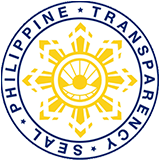In its continuing efforts to reduce the number of children, families and unattached adults at risk in the streets, the Department of Social Welfare and Development – National Capital Region (DSWD-NCR) is deploying street facilitators in different critical converging areas within NCR. To prepare them prior to their deployment in their assigned areas, DSWD-NCR conducted the general orientation of some 800 street facilitators last June 08, 2015 at the Quezon Memorial Circle.
In her message, DSWD-NCR Regional Director Ma. Alicia S. Bonoan said “ang hamon sa atin bilang isang ahensya ay makamit ang zero incidence ng mga batang nasa lansangan sa Maynila at Lungsod Quezon, at sa pagtutulugan nating lahat, kasama ng iba’t-ibang ahensya, organisasyon, at barangay officials, maari natin itong makamit.”
The first part of the activity was the brief orientation of the social protection programs of the DSWD-NCR. These programs include the Pantawid Pamilyang Pilipino Program, which is the flagship poverty reduction program of the Department that invests on human capital to improve the lives of its beneficiaries; the Modified Conditional Cash Transfer for Homeless Street Families (MCCT-HSF), which is patterned on the Pantawid Pamilya program to serve the vulnerable homeless families in the metropolis.
Meanwhile, the Comprehensive Program for street children, street families and Indigenous People especially Sama Bajaus is a pilot Social Technology project geared towards the removal of the street dwellers from the streets and provision of other social protection programs to encourage them not to go back to the streets.
The street facilitators were clarified on the objectives and packages of services to target beneficiaries which are being converged under the Oplan Balik Bahay, Sagip Buhay (OBBSB) project. The project is designed to keep families and their children in Quezon City and Manila out of the street through the provision of various packages of services to supplement their daily needs.
In the implementation of the OBBSB project, the street facilitators play a very important role in the management of the cases. Primarily, they are tasked to monitor street dwelling activities of children and families at risk on the street in the communities within Manila and Quezon City. As such they help in gathering initial data in order to update the profiles of the identified street dwellers, assist during reach-out operations and registration for MCCT and regular CCT for qualified children and families, among others.
Having known the plight of these children and families at risk on the street, the street facilitators were once street dwellers who were given assistance by DSWD-NCR in order for them to leave the dangers of street dwelling. They are part of the many DSWD programs and services as volunteers.###



